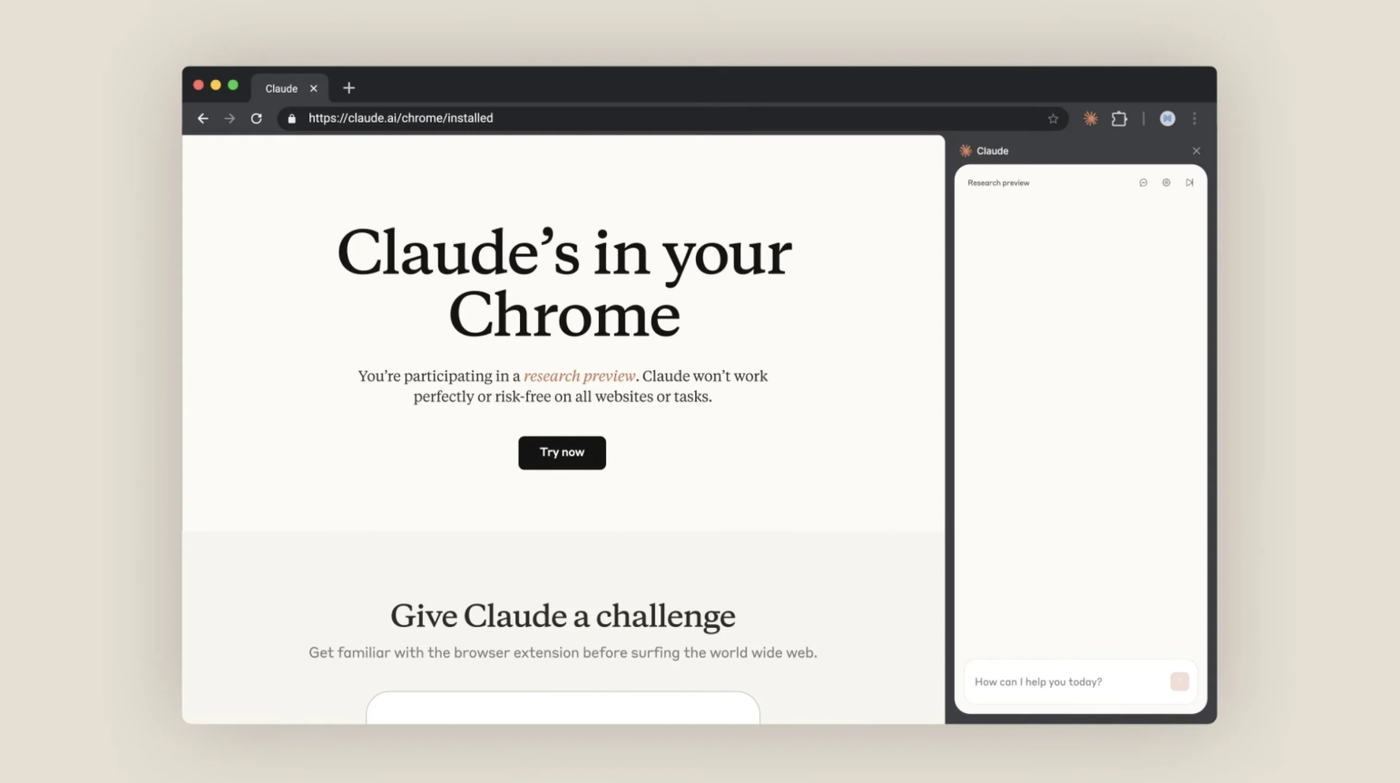Anthropic has begun experimenting with a new way to bring its popular AI assistant Claude directly into people’s browsing experience. The company has launched a Chrome extension that will act as a side panel within the browser, giving users the ability to chat with Claude while browsing any website. For now, this extension is available only to a select group of one thousand people, all of whom are subscribed to the company’s premium Claude Max plan.

According to Anthropic, the purpose of this limited test is to understand how users interact with Claude in a real-world setting. The extension is not designed to perform agentic tasks like automating clicks or carrying out transactions. Instead, it focuses on enhancing browsing by helping with reading, summarizing, and analyzing information. For example, if a user is on a lengthy research article, Claude can provide a clear summary, highlight key points, or answer specific questions without requiring the user to leave the page.
At the moment, access to the extension is restricted to users subscribed to Claude Max, which costs one hundred dollars or two hundred dollars a month depending on the plan. Those who meet the criteria can sign up for the waitlist. Anthropic has not revealed when the extension might be available to all Chrome users, but for now it is limited to the desktop version of the browser.
A demo shared by Anthropic shows that once installed, the extension appears as a right-hand panel with a text box at the bottom. By clicking the Claude icon, users can begin a conversation instantly. The AI can only access a page when granted explicit permission, ensuring users remain in control of what data Claude reads and analyzes.
Safety has been a central part of this rollout. Anthropic explained that large language model extensions are vulnerable to potential misuse through techniques such as prompt injection, which could trick the AI into performing harmful actions like phishing or even enabling ransomware attacks. To reduce risks, the extension requires permission for every new website visited and asks for extra confirmation before taking sensitive actions like publishing or sharing information.

What makes this experiment important is not just the convenience of having an AI assistant inside the browser but also the broader implications of how people will use it. Anthropic is studying whether users rely on Claude mostly for research, productivity, or casual browsing support, while also keeping an eye on the ways attackers might try to exploit such tools.
With Google Chrome being the most widely used browser in the world, this extension could eventually bring Claude to millions of users if the test goes smoothly. However, Anthropic is moving slowly, preferring a cautious and research-driven approach over a rapid launch. By limiting availability, the company can gather valuable feedback, make improvements, and address security issues before introducing the extension on a larger scale.
This step represents another move in the growing competition among AI companies to integrate assistants directly into everyday tools. As more people turn to AI for quick answers, productivity hacks, and smarter browsing, the Chrome extension could give Anthropic a competitive edge while also shaping how we interact with the web in the future.
Follow Tech Moves on Instagram and Facebook for the latest updates on AI, gadgets, and the future of technology.














